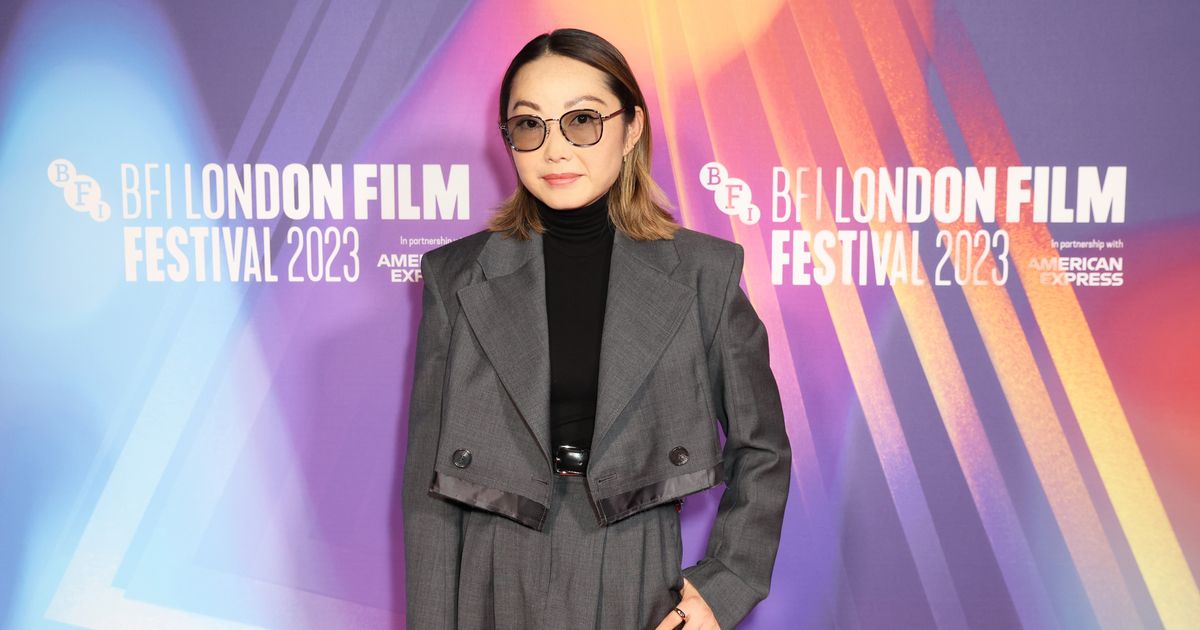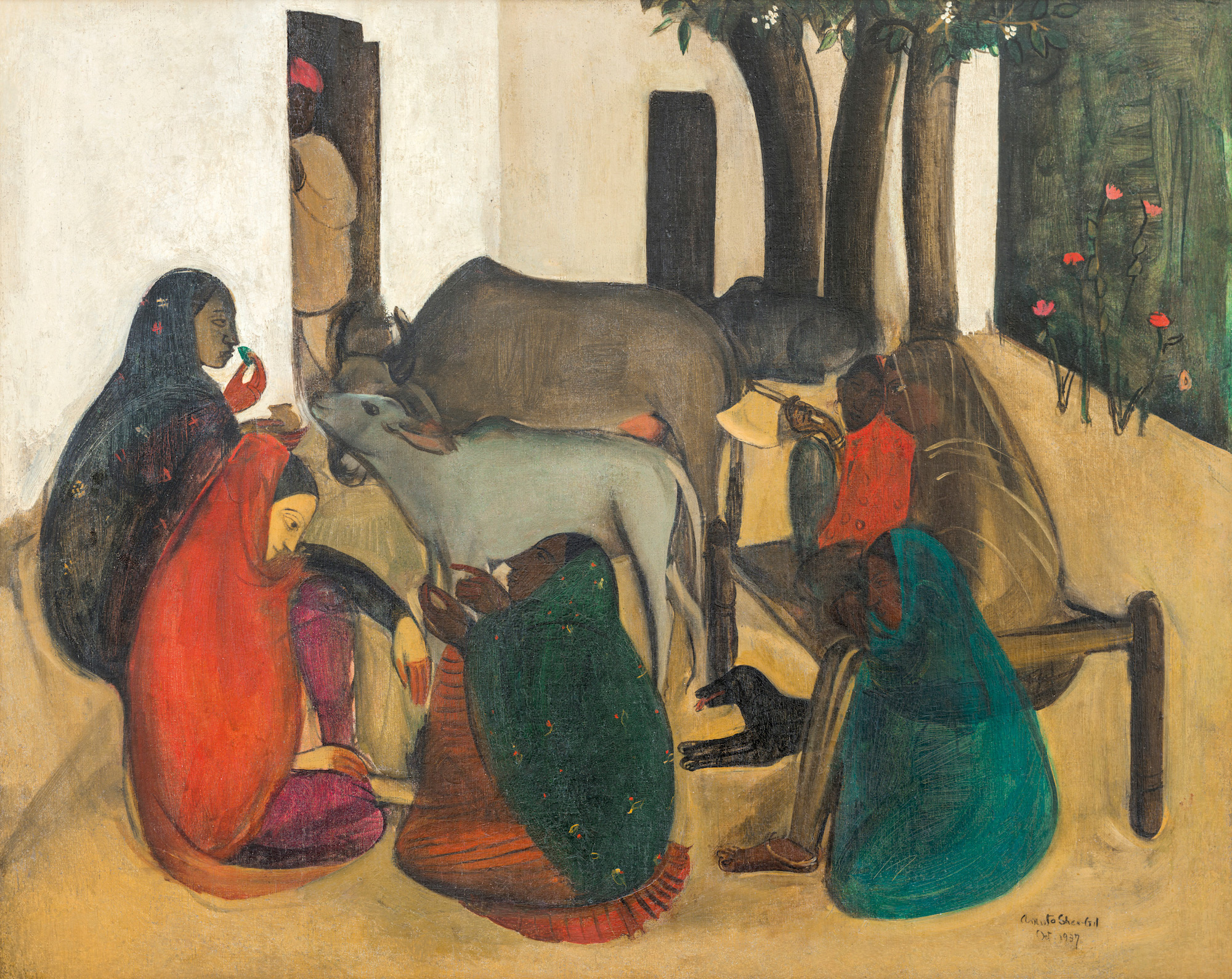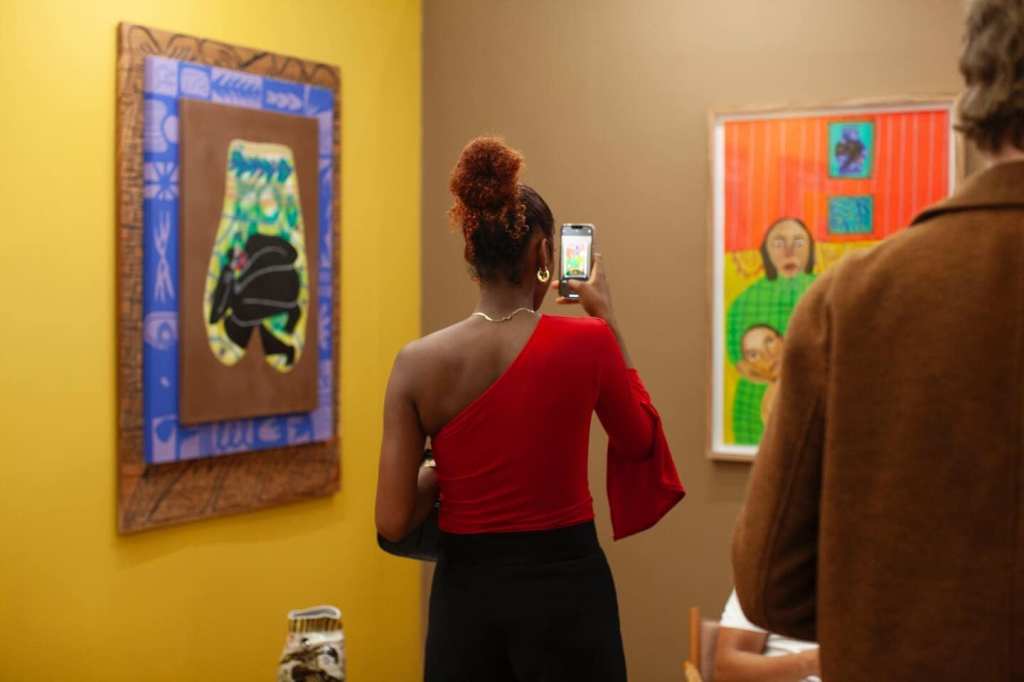Lulu Wang wasn’t sure if “Expats” was going to be the right move after the success of her 2019 film, “The Farewell.” After making its world premiere at the Sundance Film Festival and A24 picking it up, “The Farewell” became one of the most acclaimed films of that year. The movie was a deeply personal story that Wang fought hard to get made, resisting pressure from Hollywood executives to cater it to the white gaze.
“That film took off in a way that I didn’t expect at all. I did the opposite of what people said I should do, for the most part. Like, in order to appeal to a broader audience, make it more in English, cast a white person — all of these things that I rejected, to make something really personal to me,” Wang said in an interview last week, almost exactly five years since “The Farewell” premiered at Sundance. “And so, it was just shocking. But I also heard [those choices] validated and I wanted to be back in a creative space where I could take risks and make those choices again.”
During that whirlwind year, Nicole Kidman — who had optioned novelist Janice Y.K. Lee’s “The Expatriates” to develop it into a series for Amazon — approached Wang to see if she was interested in the adaptation. But Wang wondered if it might be the opposite of what she wanted to do next as a writer and director.
“I didn’t think that was going to be a space where I would have freedom to really stay small and make something against the grain and continue to look for my own voice,” she said. “And I told [Kidman] that. I said, ‘You’re a huge star. This is Amazon doing a whole series, and it’s Hong Kong. This is a nuanced, complex place.’”
To her surprise, Kidman assured her she would have complete creative freedom, and Wang realized the scale of the project could be an asset.
“So then, it became an opportunity that I couldn’t say no to, because it just felt like suddenly this expanded world and platform where I could leverage the star power of Nicole Kidman and the resources of Amazon to tell a story about the Umbrella Movement, about domestic workers, about all of these people of color who are part of the diaspora of people in Hong Kong,” she said.
“Expats,” a kaleidoscopic six-episode series that premiered Friday on Prime Video, does a lot we don’t normally see on American television. The series retains the core characters of Lee’s novel: Margaret (Kidman), Hilary (Sarayu Blue) and Mercy (Ji-young Yoo), three very different American expat women living in Hong Kong, whose stories unexpectedly become connected through a horrific tragedy. Remarkably, Wang also expands the world of the show far beyond them, telling stories about the rich tapestry of people in Hong Kong and exploring thorny questions about race, class, colorism, religion, power and agency.
It weaves together storylines for other characters as well, including Essie (Ruby Ruiz) and Puri (Amelyn Pardenilla), Margaret and Hilary’s Filipina domestic workers, whose immigrant experiences are vastly different from those of their wealthy and insulated employers, and Charly (Bonde Sham) and Tony (Will Or), two university students active in Hong Kong’s pro-democracy movement. Each of their stories, which perhaps could have been expanded into something more substantial, underscores the disparity between the ways the rich and privileged can simply leave a place when things become dire — while most people cannot.
Unusually, Wang began working on “Expats” while she was still promoting “The Farewell” in late 2019 and early 2020 “because I just wanted to get back into creating.” She assembled a team of writers from various backgrounds, mirroring the wide range of stories they wanted to tell in the series.
“We have a queer writer; we have a Sikh, Indian American writer; Janice was in the room as well, and so we just challenged each other. I had an Australian writer whose family are expats in Hong Kong,” she said. “So we just kind of all went, ‘What are all of the aspects? Let’s look at all of the different ranges of people and walks of life.’”
“The reality is there’s all these different types of people and they all have to live together, and particularly when you don’t have the privilege of separating yourself and being in an echo chamber of your own voices. That’s what I love about travel; that’s what I love about people who migrate with all these different perspectives,” she continued. “We talked about it, we researched, we watched other films and we ultimately just followed what we thought were the stories that were most exciting and interesting to us.”
She also felt a particular responsibility to capture Hong Kong’s pro-democracy movement, given her own family history. She chose to set “Expats” specifically in the summer and fall of 2014 during the Umbrella Movement, when pro-democracy activists occupied major roadways and landmarks in Hong Kong. They used umbrellas to protect themselves from police attacking them with pepper spray, which escalated into tear gas and violent arrests. The series powerfully recreates those protests and some of the surrounding events. It’s tempting to describe it as a backdrop for the series but Wang stressed that it’s much more than that.
“It was tricky, because I didn’t want it to be a backdrop per se, because for some people, it’s not just a backdrop; it’s their whole lives. And for my family, we left Beijing in 1989 during Tiananmen Square. So I saw a lot of parallels in the history of Hong Kong and in my own family history,” she said. “And yet, at the same time, it’s also not a show about Hong Kong politics. We show the people of Hong Kong, and so we wanted to just show that no one is isolated from the context of the place and the time that they’re living in. We’re all informed, to some degree or another, by the time and place that we live in.”

In the case of expats, who are often wealthy and upwardly mobile, “in many ways, they’re not citizens, they don’t live there, they are quite sheltered from the impacts of political changes — and there are other people who aren’t,” Wang continued.
“We just wanted to show that and the fact that someone who’s completely not affected, and then someone whose entire life is changing because of it, also walk past each other all the time.”
She pointed to one example of the show’s interlocking storylines: when Margaret walks by a woman with mops cleaning the floors of a market. Later in the series, we learn who this woman is — someone whose story Margaret will almost certainly never know.
“It’s just this idea that we’re so close and yet we’re so far apart from each other,” Wang said.
In grappling with the series’ delicate questions of power and privilege, Wang’s guiding principle was to try to show how power plays out in grayer areas.
“There’s a lot of movies and television and content out there that shows privilege and wealth and power, and shows it in a very extreme way,” she said. “It’s not that there isn’t evil but I think that there’s also a danger of saying, ‘Well, power always looks like this extreme,’ because the majority of the time, hierarchy and power dynamics and manipulation, it can come in these more insidious ways. Within workplaces, people are like, ‘Was that a power move? Was this, like, some kind of a manipulation or am I just imagining it?’ You don’t always know.”

One of those subtle yet insidious examples in the series is “when you’re able to call somebody family, but you’re paying them and they’re not able to go home,” Wang said, referring to the power differential between Margaret and Essie. Essie has tirelessly raised Margaret’s children like they’re her own, while barely getting to see her actual family.
Those contrasts come into full focus in the remarkable fifth episode “Central,” turning the lens on Essie and Puri (as well as many of the series’ other secondary characters) and taking place during days of torrential rain. It’s emblematic of the fluidity of the show’s structure. There are story arcs that span the whole series but each episode also feels distinctly its own, a structure that was inspired by Wang’s background in classical music.
“I’m a classically trained pianist, and so I think that on an unconscious, subconscious level, that I approached this as if I were writing a piece of music — like a sonata, for example,” she said. “And there’s all of these different movements and they’re all connected, but they’re all different as well. And when you listen, when you go to the symphony, when you go listen to a piano concerto, you’re not following plot. You’re not there going, ‘What’s going to happen next? What’s going to happen next?’ You are there to experience emotions and different rhythms. And so the rhythm was really important to me: rhythms, scale, constant juxtapositions.”
Case in point — the episode preceding “Central” is the opposite of it in terms of scale and narrative. Each of the three leads’ storylines unfolds entirely in one small space: a broken elevator, a cramped apartment and an office.
“Like, OK, if we’re going to go really small, we’re going to go in these small rooms where they’re all trapped, then in Episode 5, we’re going to blow it all up,” Wang said. “We’re going to go out in the world. We’re going to hear the rain and there’s a typhoon coming, and there’s a protest. That’s what movements in music are like. You’ve got, like, a really slow, delicate second movement. And then right from that, you go into this, like, allegro, fortissimo, grandiose. And that’s important because I think we can’t always be in one thing all the time — one feeling, one tone.”

In envisioning “Expats,” Wang drew from visual and thematic influences as varied as Robert Altman’s 1975 ensemble film “Nashville,” which similarly has interlocking stories set in a specific location that becomes its own character, and a 2012 French zombie series called “Les Revenants,” which, as Wang explained, uses genre to poetically and hauntingly explore grief and time.
Another influence was “A White, White Day,” a 2019 Icelandic film that “deals with grief in a really profound way and quite dry, like almost observational at moments,” Wang said. “It’s just that you’re not always seeing the height of the drama. The camera isn’t always in a close-up with someone’s face crying.”
(Both “Nashville” and “A White, White Day” are part of a series next month at Film at Lincoln Center in New York that Wang curated, alongside screenings of “The Farewell” and the fifth episode of “Expats.”)

Throughout her work and her life, Wang has had a fascination with contrasts, both in what we experience in the world and in what we carry within ourselves. In creating the visual style of “Expats,” she looked at the work of expat photographers “in terms of what they romanticize and what they see in Hong Kong,” such as the work of German photographer Michael Wolf.
“It’s just interesting that the people who are putting up the mops and hanging up their gloves and things like that, the working class, they’re not necessarily taking photos of their own lives in those moments,” she said. “But a German photographer walking through Hong Kong, there’s a sense of privilege, right? To be able to capture that as beauty and yet, there is also something really beautiful about giving weight to something that people themselves are not giving weight to in their own lives.”
“And that’s my life. I think about that all the time,” she added, reflecting on “The Farewell.” “I tell the story of my family and it puts me on red carpets and at awards shows, and my own family is like, ‘Why are you photographing this? Why are you writing about this? This isn’t important. This is so mundane.’ And so that disparity is always really interesting to me.”
With her producing partner, Dani Melia, Wang started a production company called Local Time, focused on championing younger and newer voices in television. As for herself, she has a couple of ideas in the works. Whatever her next project is, she said it will definitely be a film because “I need to do something small, relatively contained as far as time goes, because this was such a long process.”
When I pointed out that making an entire series must be a huge vote of confidence and going back to film might feel much more manageable now, she agreed, saying, “Totally. I’m like, ‘I can’t have imposter syndrome now!’”
“Expats” airs Fridays on Prime Video.



